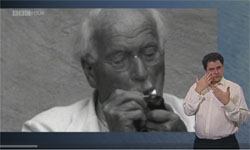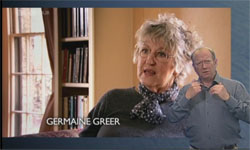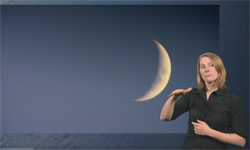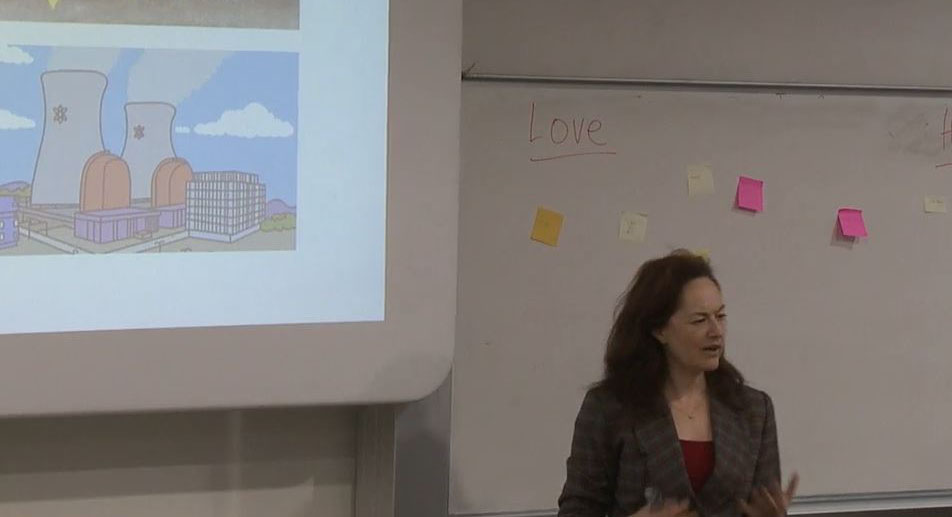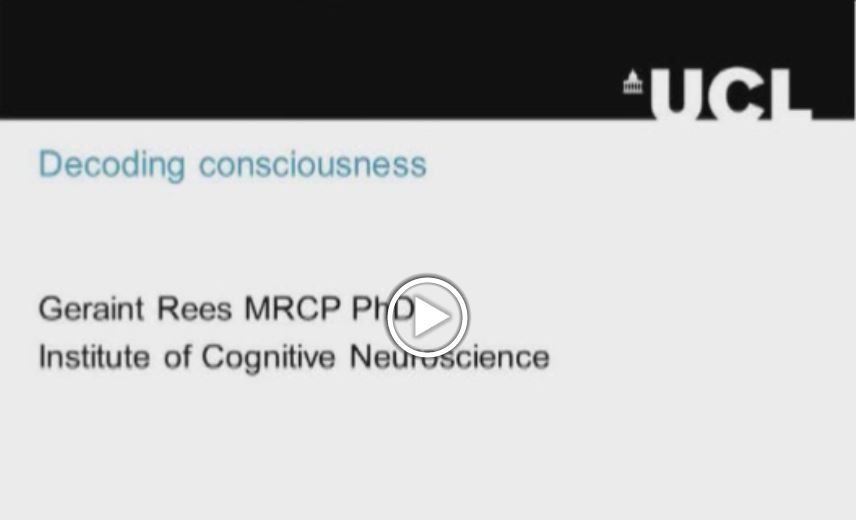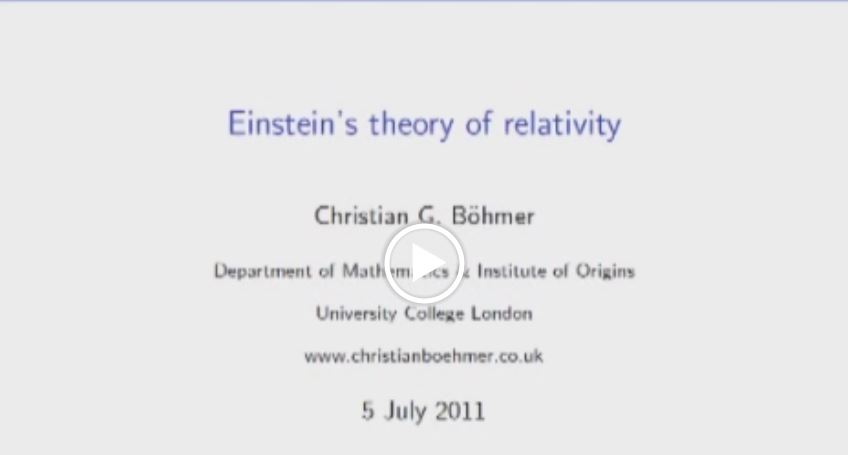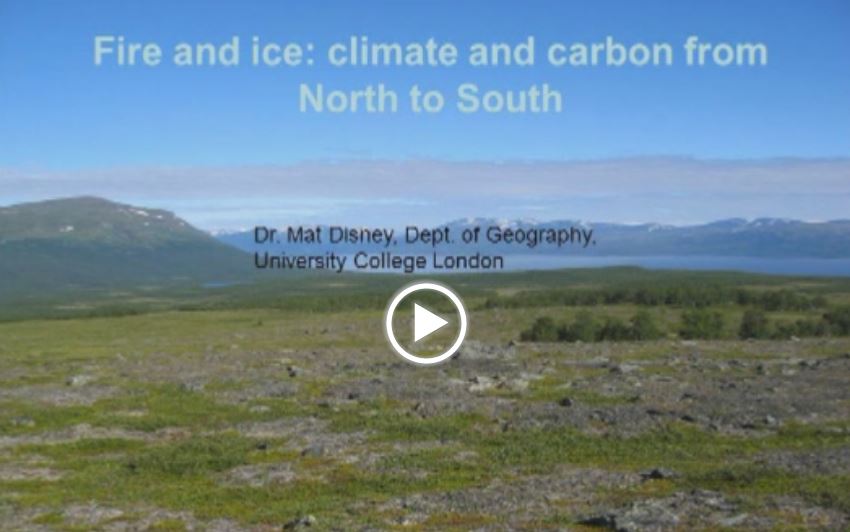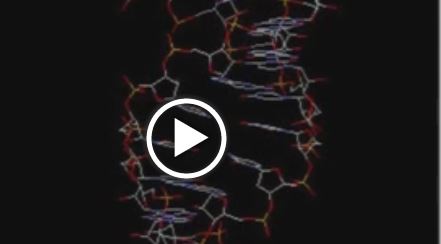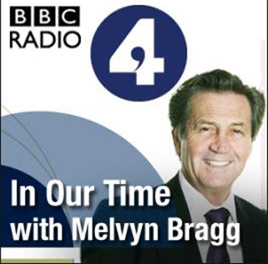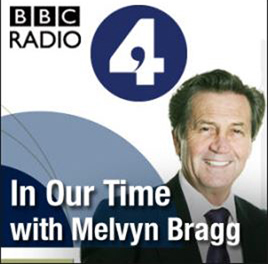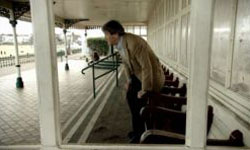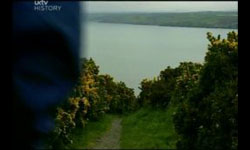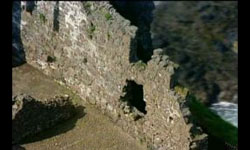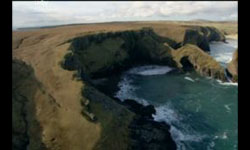Select one or more of these popular tags:
Series which looks at important thinkers through the TV and radio broadcasts they made for the BBC. Includes rare and never-seen archive of Freud, Jung and Bertrand Russell.
- British-Sign-Language
- General Science
- BSL subtitles
- 60
Series which looks at important thinkers through the TV and radio broadcasts they made for the BBC. Includes rare and never-seen archive of Freud, Jung and Bertrand Russell.
The question of how to run a good society has puzzled intellectuals for centuries. Should we allow governments to secure a better country, or place our trust in the individual?
- British-Sign-Language
- General Science
- BSL subtitles
- 60
The question of how to run a good society has puzzled intellectuals for centuries. Should we allow governments to secure a better country, or place our trust in the individual?
Horizon reveals the latest research into one of the most mysterious and common human experiences - pain.
- British-Sign-Language
- General Science
- No subtitles
- 60
Horizon reveals the latest research into one of the most mysterious and common human experiences - pain.
Famed for their ability to inflict Armageddon from outer space, asteroids are now revealing the secrets of how they are responsible for both life and death on our planet.
- British-Sign-Language
- General Science
- BSL subtitles
- 58
Famed for their ability to inflict Armageddon from outer space, asteroids are now revealing the secrets of how they are responsible for both life and death on our planet.
-
An Introduction to Philosophy of Science
-
Prof Donald A Gillies
Diploma Lecture 19 2005-2006
- Lectures
- General Science
- No subtitles
- 60
Diploma Lecture 19 2005-2006
-
Clinical and Applied Bioinformatics
-
Dr Matthew W. Darlison , 2006
Diploma Lecture 17 2005-2006
- Lectures
- General Science
- No subtitles
- 60
Diploma Lecture 17 2005-2006
-
Current Attitudes to Carbon Capture and Storage
-
Dr Melanie Smallman , 2019
Science and Society Lecture 5th March 2019
- Lectures
- General Science
- No subtitles
- 43
Science and Society Lecture 5th March 2019
-
Decoding Consciousness
-
Geraint Rees , 2011
Pre-sessional lecture 2011
- Lectures
- General Science
- No subtitles
- 53
Pre-sessional lecture 2011
-
Einstein’s Theory of Relativity
-
Dr Christian Boehmer , 2011
Pre-Sessional 2011
- Lectures
- General Science
- No subtitles
- 60
Pre-Sessional 2011
-
Fire and Ice: Climate and Carbon from North to South
-
Dr Mat Disney , 2012
Diploma Lecture 2012
- Lectures
- General Science
- No subtitles
- 44
Diploma Lecture 2012
-
Introduction to Remote Sensing of Environmental Change (with transcript)
-
Dr Mathias Disney , 2007
Diploma November 2007
- Lectures
- General Science
- No subtitles
- 60
Diploma November 2007
-
Nanotechnology - A Chemical Approach to Nanomaterials
-
Dr Charles Dunnill , 2011
Pre-Sessional 2011
- Lectures
- General Science
- No subtitles
- 52
Pre-Sessional 2011
-
Nature, Nurture, or Neither?
-
Prof. Steve Jones , 2010
Diploma 2010/11
- Lectures
- General Science
- No subtitles
- 50
Diploma 2010/11
-
The Public Understanding of Science
-
Dr Simon J Lock , 2011
UPC 2011
- Lectures
- General Science
- No subtitles
- 43
UPC 2011
-
The Reporting of Science
-
Dr Peter Bowman , 2008
Diploma Lecture 2008
- Lectures
- General Science
- No subtitles
- 50
Diploma Lecture 2008
-
In Our Time - Science in the 20th Century
-
Melvyn Bragg
Melvyn Bragg and guests discuss how perceptions of science and the power of science have changed in the 20th century.
Melvyn Bragg and guests discuss how perceptions of science and the power of science have changed in the 20th century.
-
In Our Time - Science's Revelations
-
Melvyn Bragg
With Richard Dawkins evolutionary biologist, reader in Zoology and Fellow of New College, Oxford, Charles Simonyi Chair of Public Understanding of Science, Oxford University and author of Unweaving The Rainbow: Science, Delusion and The Appetite For Wonder; Ian McEwan, novelist, and author of the Booker prize winning novel Amsterdam.
With Richard Dawkins evolutionary biologist, reader in Zoology and Fellow of New College, Oxford, Charles Simonyi Chair of Public Understanding of Science, Oxford University and author of Unweaving The Rainbow: Science, Delusion and The Appetite For Wonder; Ian McEwan, novelist, and author of the Booker prize winning novel Amsterdam.
-
In Our Time - The Needham Question
-
Melvyn Bragg
Why did Modern Science develop in Europe when China seemed so much better placed to achieve it? This is called the Needham Question, after Joseph Needham, the 20th century British Sinologist who did more, perhaps, than anyone else to try and explain it. Why did China’s early technological brilliance not lead to the development of modern science and how did momentous inventions like gunpowder and printing enter Chinese society with barely a ripple and yet revolutionise the warring states of Europe?
Why did Modern Science develop in Europe when China seemed so much better placed to achieve it? This is called the Needham Question, after Joseph Needham, the 20th century British Sinologist who did more, perhaps, than anyone else to try and explain it. Why did China’s early technological brilliance not lead to the development of modern science and how did momentous inventions like gunpowder and printing enter Chinese society with barely a ripple and yet revolutionise the warring states of Europe?
Two physicists turned novelists - Gregory Benford and Andrew Crumey share their thoughts on the nature of time and Einstein's theories of Special and General relativity through their [respective] books Timescape and Mobius Dick. Whilst both writers can be placed in the genre of science fiction, their stories are firmly rooted in the latest research and theoretical musings of Einstein's latter-day followers.
Two physicists turned novelists - Gregory Benford and Andrew Crumey share their thoughts on the nature of time and Einstein's theories of Special and General relativity through their [respective] books Timescape and Mobius Dick. Whilst both writers can be placed in the genre of science fiction, their stories are firmly rooted in the latest research and theoretical musings of Einstein's latter-day followers.
-
English for Science
-
Fran Zimmerman , Prentice Hall , 1989
This book is intended to prepare students to participate in basic science courses, especially by aiming to develop concepts of critical thinking and inquiry. It integrates the four basic language skills - reading, writing, listening and speaking - to facilitate the leap from basic English to academic English and prepare students to comprehend and use college-level science material
- 0-132-82179-6 2412
- Special Interest
- General Science
- 1 copies
- B1 B2 C1
This book is intended to prepare students to participate in basic science courses, especially by aiming to develop concepts of critical thinking and inquiry. It integrates the four basic language skills - reading, writing, listening and speaking - to facilitate the leap from basic English to academic English and prepare students to comprehend and use college-level science material
-
Epistemic Cultures - How the Sciences Make Knowledge
-
Karin Knorr Cetina , Harvard University Press , 1999
Comtemporary western societies are becoming "knowledge societies," that run on expert processes and expert systems epitomised by science and structured into all areas of social life. By looking at epistemic cultures in two sample cases, this book addresses pressing questions about how such expert systems and processes work, what principles inform their cognitive and procedural orientations and whether their organisation, structures and operations can be extended to other forms of social order
- 0-674-25894-0 3640
- Special Interest
- General Science
- 1 copies
- C1 C2
Comtemporary western societies are becoming "knowledge societies," that run on expert processes and expert systems epitomised by science and structured into all areas of social life. By looking at epistemic cultures in two sample cases, this book addresses pressing questions about how such expert systems and processes work, what principles inform their cognitive and procedural orientations and whether their organisation, structures and operations can be extended to other forms of social order
-
Life In The Freezer
-
Alistair Fothergill , BBC Books , 1993
"Life in the Freezer" is an exciting new natural history of the Antarctic. Less celebrated than its northern equivalent, it boasts an equal blend of extraordinary wildlife and stunning scenery. In this book, Alastair Fothergill traces the region's seasonal cycle and explains how marine, mammal, bird and plant life survive in one of the harshest climates on earth
- 0-563-36431-9 2557
- Special Interest
- General Science
- 1 copies
- C1 C2
"Life in the Freezer" is an exciting new natural history of the Antarctic. Less celebrated than its northern equivalent, it boasts an equal blend of extraordinary wildlife and stunning scenery. In this book, Alastair Fothergill traces the region's seasonal cycle and explains how marine, mammal, bird and plant life survive in one of the harshest climates on earth
-
Oxford English for Careers: Technology 1, Student's Book
-
Eric H. Glendinning , Oxford University Press , 2007
Oxford English for Careers is a new, up-to-date course where you learn what you need to know for a career in technology. Learn the English you need to do the job; practise language in real work situations; Learn specialist vocabulary on every page.
- 9780194569507 101436
- Special Interest
- General Science
- 1 copies
- A2 B1
Oxford English for Careers is a new, up-to-date course where you learn what you need to know for a career in technology. Learn the English you need to do the job; practise language in real work situations; Learn specialist vocabulary on every page.
-
A World Without Water
-
Brian Woods
As the highest water bills ever land on doormats across the UK this April, this film investigates the future of the world's water, and paints a disturbing picture of a world running out of the most basic of life's essentials.
- TV-Recordings
- General Science
- No subtitles
- 75
As the highest water bills ever land on doormats across the UK this April, this film investigates the future of the world's water, and paints a disturbing picture of a world running out of the most basic of life's essentials.
Through compelling testimony from 7-10 year-old survivors, this film reveals how the deadly wave and the Fukushima nuclear accident have changed children's lives forever
- TV-Recordings
- General Science
- No subtitles
- 60
Through compelling testimony from 7-10 year-old survivors, this film reveals how the deadly wave and the Fukushima nuclear accident have changed children's lives forever
The nation's love affair with the coast will be reawakened for this entertaining and ambitious exploration of the entire UK coastline. Across 13 programmes Coast celebrates the unique character of the UK's coastal communities, exploring a wealth of fascinating human stories through a mixture of expert comment, contemporary storytelling and computer-generated images. This is the coast as never seen before.
- TV-Recordings
- General Science
- No subtitles
- 60
The nation's love affair with the coast will be reawakened for this entertaining and ambitious exploration of the entire UK coastline. Across 13 programmes Coast celebrates the unique character of the UK's coastal communities, exploring a wealth of fascinating human stories through a mixture of expert comment, contemporary storytelling and computer-generated images. This is the coast as never seen before.
The South Wales coast, by the Second Severn Bridge, has the second highest tidal range in the world, at around 14.5 metres (the highest is the Bay of Fundy, located off the northern coast of Maine, USA). It's also home to an extraordinary tidal phenomenon - the Severn Bore.
- TV-Recordings
- General Science
- No subtitles
- 60
The South Wales coast, by the Second Severn Bridge, has the second highest tidal range in the world, at around 14.5 metres (the highest is the Bay of Fundy, located off the northern coast of Maine, USA). It's also home to an extraordinary tidal phenomenon - the Severn Bore.
The coast of North West England covers some classic industrial landscapes and playgrounds, and a dangerous world of shifting sands.
- TV-Recordings
- General Science
- No subtitles
- 60
The coast of North West England covers some classic industrial landscapes and playgrounds, and a dangerous world of shifting sands.
Scotland's west coast has the most jagged and dramatic coastline in Great Britain. It's only 300 miles as the seagull flies, but once you add in the dozens of islands anchored off this rugged coastline it is thousands of miles.
- TV-Recordings
- General Science
- No subtitles
- 60
Scotland's west coast has the most jagged and dramatic coastline in Great Britain. It's only 300 miles as the seagull flies, but once you add in the dozens of islands anchored off this rugged coastline it is thousands of miles.
This is a coast of two halves, divided by the broad Humber. We start on the craggy grandeur of the Yorkshire coast and finish by wading through the vast salt marshes and mudflats of the Wash.
- TV-Recordings
- General Science
- No subtitles
- 60
This is a coast of two halves, divided by the broad Humber. We start on the craggy grandeur of the Yorkshire coast and finish by wading through the vast salt marshes and mudflats of the Wash.

